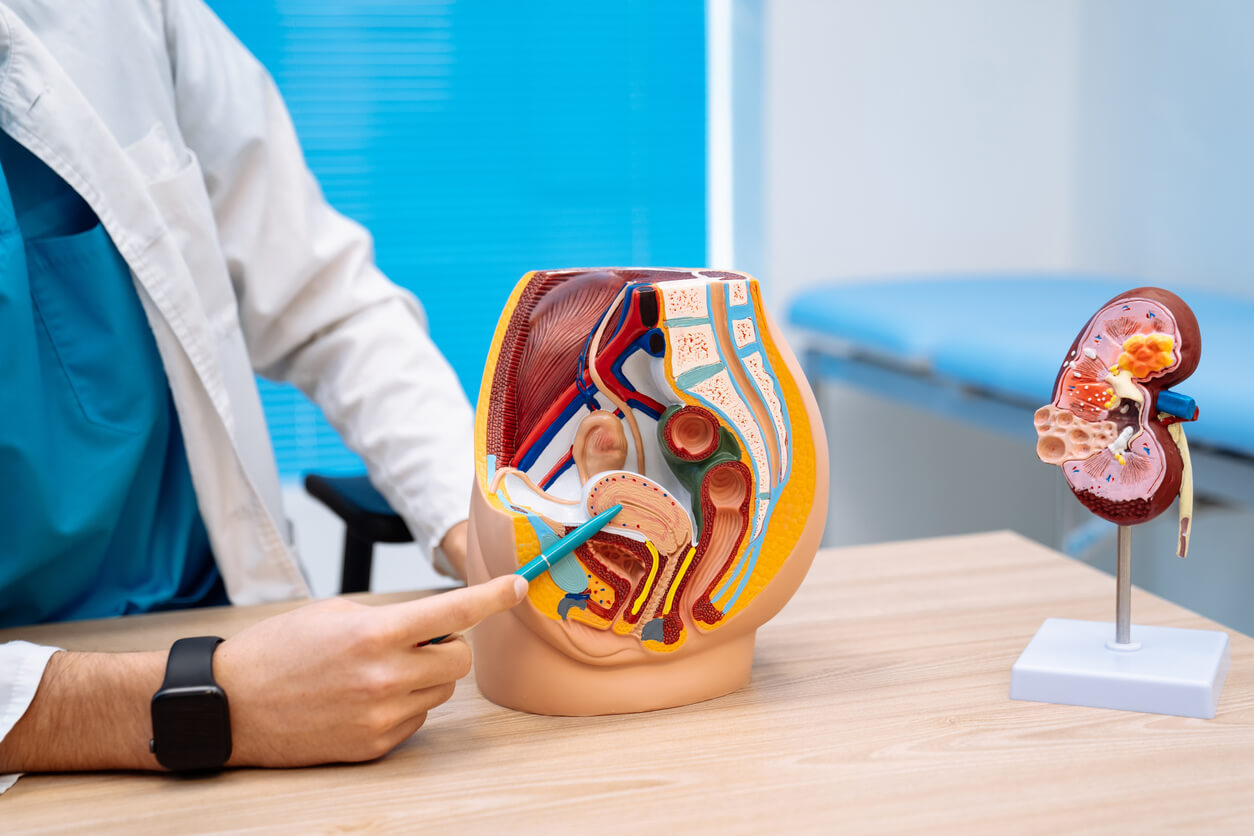Female Urology
- Home
- Female Urology

Female Urology
Female urology – the super-specialty or a sub-specialty that covers a group of conditions that are experienced by females. Urologic conditions affect both men and women, but women may experience disorders differently. Urinary tract and kidney problems are common in females in part because the urinary tract is much closer to their genital area than in men. As such, pregnancy, childbirth and sexual intercourse can also play a part in urologic conditions affecting females. This is an uncommonly practiced area of Urology and female urologist specialises in the treatment of these diseases.
Dr. Subodh Kamble hold expertise in functional Urology and Female Urology. He has an extensive experience in treating and managing female urology problems. He acquired extensive experience and skill whilst working in UK during his fellowship that involved female.
General Urinary condition in females and treatment offered:
Urinary tract infection:
It’s the most common condition. It is painful, sometimes cloudy or foul-smelling urine, often accompanied by urgency, frequency, burning and pain with urination and often occurring several times a year. Dr Kamble offers intravesical treatment for recurrent urine infections, and he is probably the only one in India offering this treatment which replaces the GAG layer. The medication isn’t available in India but Dr Kamble either obtains it from overseas or prepares his own.
Overactive bladder:
Having to pee at all hours and with little warning can be a nuisance. It affects men and women alike. Patients with this condition have to urinate every 20 mins to an hour, wake up several times in the night, have unavoidable urge to pass urine and sometimes urine leak called urge incontinence. Dr Kamble offers medical as well as surgical treatment for the above problem.
Incontinence after pregnancy:
This unintentional leakage after laughing, coughing, sneezing or jumping most often occurs in women in their late 30s and older, typically after having children. Excess bodyweight can also contribute to developing leakage.
Painful Bladder Syndrome:
The medical name for painful bladder syndrome is interstitial cystitis (IC). It causes discomfort in the bladder or lower belly. Women may feel the need to urinate up to 60 times a day. They may feel as if their bladder is always full. This can be uncomfortable and upsetting. The urge to urinate can also be sudden and severe. It can interfere with everyday activities. Some women avoid social events or travel away from home. Sex can also be uncomfortable or painful.
Voiding dysfunction:
The lower urinary tract, which includes the bladder and urethra, allows for storage and discharge of urine. Voiding dysfunction is a general term describing poor coordination between the bladder muscle and the urethra, in which the bladder does not empty properly. Symptoms typically include a strong urge to urinate, frequent urination and the inability to empty the bladder. Dr Subodh Kamble is the only surgeon in India who performs intra sphincteric botulinum toxin surgery for successful treatment of this condition.
Urinary fistula:
Urinary fistulas include any abnormal connection between the kidney, bladder, urethra, the colon and the vagina. The result can be urine leaking from the vagina due to that abnormal connection.
Urethral diverticulum:
Urethral diverticulum (UD) occurs when a pocket-like pouch forms next to the urethra. Since it most often connects to the urethra, this pocket repeatedly gets filled with urine thus causing infection and symptoms. Typical symptoms include frequent urination, urgent need to urinate and dysuria (pain during urination). UD is more common in females than in males and usually occurs between the ages of 40 and 70.
Pelvic floor dysfunction:
The pelvic floor is a “bowl” of muscles supporting the bladder, vagina and rectum. Those muscles, particularly after childbirth, get disrupted and can become irritated and inflamed.” The muscles need to relax to urinate well and pass a bowel movement. Tension also can cause pain during intercourse, painful or frequent urination and lower back pain.
Dr Subodh has specialisation in dealing with females urological conditions and offers comprehensive treatments for a wide variety of female urological conditions.
Kidney stones:
Kidney stones forms when minerals and salts in the urine clump together as “stones,” as small as a grain of sand or as large as a golf ball. Smaller stones can often pass with the urine; larger stones may require medical and/or surgical treatment.
Bladder infection:
Bladder infection is a type of urinary tract infection (UTI), both of which most often occur in women. Bladder infections can cause pain or burning when urinating and result in an urge to urinate frequently.
Bladder stones
These are hard masses of minerals that form in the bladder when urine becomes concentrated. They are most common in females who are unable to empty their bladder completely. This can happen during illness, after nervous system damage.
Meatal stenosis
This occurs when the urethra opening narrows at the tip of the Urethra. Meatal stenosis can exist from birth or be acquired and it is more commonly seen in postmenopausal females.
Urethritis
Urethritis (inflammation of the urethra) is usually caused by bacteria and treated with antibiotics. Pain with urination is the primary symptom.
Urethral strictures
This is scar tissue in the urethra that can block or reduce urine flow.
Emergency Cases
Please feel free to contact Dr Subodh Kamble for any urological emergencies
